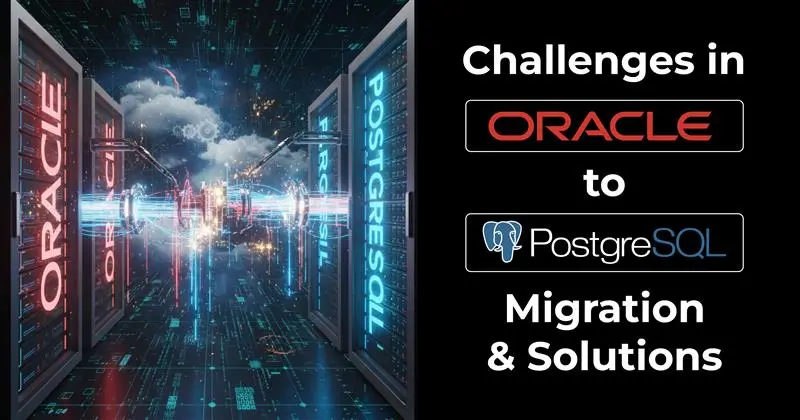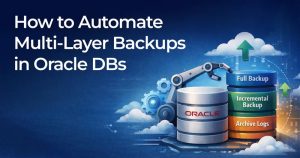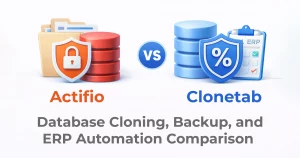Many organizations are reevaluating their database architectures, and one trend that has been gaining significant momentum is the migration from Oracle to PostgreSQL. As companies seek to reduce costs, avoid vendor lock-in, and embrace open-source alternatives, moving to PostgreSQL has become a popular choice. However, this migration is not without its challenges.
Migrating from Oracle to PostgreSQL involves more than just data transfer; it requires a complete overhaul of the database structure, application logic, and business processes that rely on the Oracle ecosystem. In this article, we’ll dive deep into the real-world challenges organizations face during this migration process and how to navigate them.
Key Challenges Faced During Oracle to PostgreSQL Migration
1. Data Migration and Compatibility Issues
One of the most significant challenges during Oracle to PostgreSQL migration is ensuring that data is properly transferred without corruption or loss. Oracle and PostgreSQL differ in terms of data types, syntax, and storage mechanisms.
- Data Type Differences: Oracle supports some proprietary data types (like DATE, BLOB, CLOB, etc.) that don’t have direct equivalents in PostgreSQL. Ensuring that each data type is correctly mapped to a corresponding type in PostgreSQL requires meticulous planning.
- Schemas and Tables: The structure of schemas and tables in Oracle may need to be redefined for PostgreSQL, as Oracle uses PL/SQL while PostgreSQL uses PL/pgSQL. In addition, some features in Oracle (like partitions) may require custom workarounds in PostgreSQL.
Real-World Example:
A retail company migrating its customer data from Oracle to PostgreSQL encountered issues with large binary objects (BLOBs) that were stored in Oracle. These objects did not transfer seamlessly into PostgreSQL, causing delays in the migration project.
2. Application Code Changes
Oracle-based applications often make heavy use of Oracle-specific SQL functions, stored procedures, and triggers, many of which are not directly compatible with PostgreSQL. This means that application code and business logic need to be refactored to work with PostgreSQL’s syntax and capabilities.
- SQL Query Optimization: Oracle and PostgreSQL have different query optimizers. SQL queries that run efficiently in Oracle may not perform as well in PostgreSQL without optimization and tuning.
- Stored Procedures and Triggers: Oracle’s PL/SQL is very different from PostgreSQL’s PL/pgSQL. Complex stored procedures and triggers may need to be rewritten completely or adjusted for PostgreSQL’s execution model.
Real-World Example:
An e-commerce platform relying on Oracle’s extensive PL/SQL-based triggers to manage inventory control faced significant delays when migrating to PostgreSQL. They had to rework each trigger and stored procedure to match PostgreSQL’s syntax, leading to unexpected costs and resource allocation.
3. Data Integrity and Consistency
During a database migration, ensuring data integrity is crucial. Any migration process carries the risk of inconsistent data if not properly validated. Data integrity issues may arise when:
- Foreign keys and constraints are not handled correctly.
- Data dependencies are overlooked, which can lead to orphaned or mismatched records.
- Transaction handling in PostgreSQL differs from Oracle, which can cause issues in high-volume transactional environments.
Real-World Example:
A financial institution migrating to PostgreSQL from Oracle discovered data integrity issues in their customer account records after the initial migration. The foreign key constraints in Oracle didn’t align correctly with the relational structure in PostgreSQL, leading to data inconsistency. They had to perform an additional round of validation to ensure accuracy.
4. Performance Tuning and Optimization
PostgreSQL, while highly capable, requires specific tuning to reach the level of performance that Oracle users are accustomed to. Optimizing query performance in PostgreSQL involves:
- Indexing and Query Execution Plans: PostgreSQL has different strategies for indexing and executing queries. Migration teams need to test and optimize each query to ensure that performance matches or exceeds that of the Oracle database.
- Configuration Tuning: PostgreSQL’s memory and disk I/O configuration settings (e.g., work_mem, shared_buffers) may need to be fine-tuned for high-performance operations, especially when migrating large datasets.
Real-World Example:
A global telecom company migrating from Oracle to PostgreSQL experienced a performance dip in their reporting tools. Complex, resource-heavy queries that ran quickly in Oracle began to perform sluggishly after the migration. It took several months of tuning the PostgreSQL settings and rewriting queries to achieve similar performance levels.
5. Tool and Application Compatibility
Many organizations have built sophisticated integrations around Oracle’s ecosystem, such as Oracle BI (Business Intelligence), Oracle RAC (Real Application Clusters), and Oracle Data Guard. Replacing Oracle’s proprietary tools with open-source alternatives that work seamlessly with PostgreSQL can be challenging.
- BI and Reporting Tools: Tools that were designed to work with Oracle databases may not support PostgreSQL out of the box or may require complex configurations to do so.
- ETL Processes: If your organization relies on ETL (Extract, Transform, Load) processes to move data into Oracle, these processes need to be adjusted to support PostgreSQL’s features and performance characteristics.
Real-World Example:
A logistics company that migrated to PostgreSQL from Oracle struggled with integrating their BI reporting tools, which were heavily customized to Oracle’s native SQL. They faced delays in upgrading the reporting system and had to employ a hybrid strategy during the transition.
6. Lack of Skilled Resources
Oracle to PostgreSQL migration is a highly specialized task. Many organizations find themselves lacking in-house expertise to handle the intricacies of such a complex migration. Finding skilled professionals who understand both Oracle and PostgreSQL’s architecture, performance tuning, and troubleshooting can be time-consuming and expensive.
Real-World Example:
A healthcare organization planning to migrate their patient management system from Oracle to PostgreSQL faced difficulties finding experts in PostgreSQL database architecture, resulting in longer project timelines and increased costs.
7. Downtime and Risk Management
For mission-critical applications, minimizing downtime during the migration is a top priority. However, the more complex the migration, the harder it becomes to ensure that the transition occurs smoothly without service interruptions.
- Database Synchronization: During migration, ensuring the data in the Oracle system is synced with the new PostgreSQL database while the system is live is often a major challenge. Any inconsistency between the two systems could lead to data loss or errors.
- Rollback Plans: In case of migration failure, having a comprehensive rollback strategy is crucial. A failed migration could risk losing access to critical business data or disrupt operations.
Real-World Example:
A manufacturing company migrating its inventory management system to PostgreSQL from Oracle experienced significant downtime during the migration. They faced a huge business risk as the application that manages inventory was down for over 24 hours, impacting their operations.
Clonetab: The Solution for Oracle to PostgreSQL Migration Challenges
Despite the significant challenges involved, the migration from Oracle to PostgreSQL doesn’t have to be a daunting task. Clonetab, an automated cloning and migration solution, offers a streamlined approach to handle the complexities of this transition.
Here’s how Clonetab can help:
- Automated Data Migration: Clonetab supports seamless data migration from Oracle to PostgreSQL, handling data type mapping, integrity checks, and data transfer without errors.
- Database Schema Conversion: The tool automates the conversion of Oracle schema structures into PostgreSQL-friendly formats, reducing manual intervention and errors.
- Application Compatibility: Clonetab can assist in converting PL/SQL code to PL/pgSQL, optimizing queries, and ensuring that business logic is preserved during the migration.
- Zero Downtime: With Clonetab’s live migration capabilities, businesses can ensure zero downtime during the transition from Oracle to PostgreSQL, reducing operational disruptions.
- Performance Optimization: Post-migration, Clonetab helps with performance tuning, ensuring that PostgreSQL runs as efficiently as Oracle, with minimal adjustments needed.
- Custom Solutions: Whether you need custom ETL processes, integration tools, or specific configurations, Clonetab’s flexibility allows you to adapt it to your unique needs.
In conclusion, while migrating from Oracle to PostgreSQL presents several challenges, with the right tools and strategies, it is certainly achievable. Clonetab offers an efficient, automated solution that can simplify and accelerate the migration process, helping businesses reduce risks, optimize performance, and minimize downtime.




